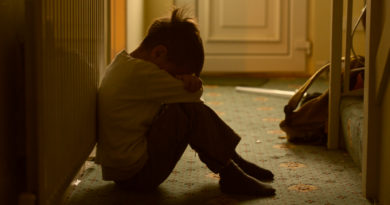Coping with Mother’s Day After Child Loss

her son or daughter. Photo © iStock.com/AntonioGuillem
Regardless of when a death occurs, holidays often prove challenging for anyone mourning the loss of a loved one — particularly after a child dies. These annual times of celebration serve to remind parents, siblings and other family members not only of previous happy holiday moments together, but can also trigger renewed waves of grief at the thought of the many future celebrations now denied to them by the forever-loss of death. This article offers several meaningful suggestions to help you cope with Mother’s Day if you experienced child loss, or to help you support someone who is grieving a son or daughter during the annual holiday.
Motherhood is Forever
In the 1968 Broadway play I Never Sang for My Father by Robert Anderson, actor Hal Holbrook’s character, Gene Garrison, uttered the immortal line: “Death ends a life, but it does not end a relationship.” Perhaps no quotation better captures how a mother feels after child loss than this one.
Whether throughout a son or daughter’s lifetime or following his or her premature death — and regardless of the child’s age or how long ago he or she died — a mother never stops being a mother inside. A woman does not “get over” the death of her son or daughter eventually; at best, she learns to cope with the scar on her heart and to recognize some of the things that trigger her grief because her relationship with, and her love for, her child is eternal.
Moreover, such feelings are not unique to the mother of an only child. Regardless of whether she outlived an adult son or daughter, has other children, or suffered a miscarriage or stillbirth (and even among couples struggling unsuccessfully to conceive), the Mother’s Day holiday can trigger profound feelings of sadness, depression and anger in a woman, as well as internal questions about her status/worth as a mother and/or a woman, which cause her to feel like she doesn’t “fit in.”
For Mothers: Do not doubt that your feelings are valid and real, regardless of the circumstances surrounding the loss of your child, how long ago it occurred or if someone else misguidedly tells you “how” you should feel. Likewise, you do not need to conceal your emotions on Mother’s Day. Instead, accept and acknowledge your feelings, both to yourself and to others, because doing so will not only help you better cope with your grief but might also open a healthy, healing dialog with others who share your sadness but feel afraid to mention it for fear of upsetting you.
For Others: If you find yourself hesitating to mention or acknowledge Mother’s Day openly to a woman who experienced child loss, take the risk anyway despite fears that you might “start something.” You don’t necessarily need to send her a Mother’s Day card, flowers or take her to brunch; instead, offer her the simple-yet-powerful gift of acknowledgement. Simply let her know that she is in your thoughts during the Mother’s Day holiday; that you, too, miss her son or daughter at this time; or any other genuine, heartfelt feelings you might have.
Avoid Avoidance
Language probably ranks as the greatest “invention” in human history. Using words, we convey ideas, facts and emotions that inspire, inform and influence others. Unfortunately, we also use language to conceal, deny or insulate us from reality — particularly when dealing with fundamentally uncomfortable subjects, such as death.
There are a host of euphemisms used to refer to dying and death, and people generally resort to them without realizing it after a loved one dies. For example, while he was always “Jim” or “Dad” throughout life, as soon as death occurs, we use “his body,” “the deceased,” our “loved one,” the “patient” or a plethora of other less-personal, third-person terms that distance us from an inescapable truth: Jim or Dad died. While we understandably use such words as a coping mechanism at times, this use of language/euphemisms can heighten feelings that a person never really existed — especially when everyone around us refuses to use his or her name.
For Mothers: The forever-love you feel in your heart and soul after child loss has a name. You know this, and you should never fear to use his or her name — whether to yourself or others. Moreover, by using your child’s name in conversation, you will help everyone around you feel more comfortable doing the same, which ultimately helps keep the reality of your son or daughter’s existence alive, regardless of his or her longevity.
For Others: If you feel awkward or afraid to use the name of a deceased child, don’t. Resorting to euphemisms, impersonal “distancing words” in lieu of using the child’s name, or complete avoidance because you fear “reminding” a mother on Mother’s Day about the loss of her son or daughter (or at any other time) is completely unnecessary — she remembers. Instead, grant her the priceless gift of reinforcing the reality of her child’s existence, the fact of her loss and the validity of her feelings by using the name of her son or daughter.
Change the Focus
Author and poet Maya Angelou wrote: “I will look after you and I will look after anybody you say needs to be looked after, any way you say. I am here. I brought my whole self to you. I am your mother.”
Indeed, boundless love and willing self-sacrifice form the bedrock of motherhood — a fact we honor and celebrate annually on Mother’s Day (although it surely merits our appreciation the other 364 days of the year, too). Unfortunately, mothers too often make their personal needs subservient to the needs of others/everyone else, which can hamper and delay the necessary grief work that must occur following the death of a child.
For Mothers: This holiday, put your needs first for a change and focus on caring for yourself. Grief is hard work and takes a genuine toll physically, emotionally and spiritually, so do whatever you need to comfort and soothe your heart, mind and soul on Mother’s Day. Whether that means spending time with a loving family member or friend, finding some solitude, or a combination of both, tell yourself that, because you are grieving, you must take care of yourself and not feel guilty for doing so. Those who truly love you will understand.
For Others: If a woman you know experienced the loss of her child — regardless of how long ago it occurred — provide her with the very same love, support and understanding we associate with mothers. Offer her the gift of your physical presence if she wants it, but don’t feel unhappy or offended if she pushes you away or wishes to be alone on Mother’s Day. Encourage her to take care of herself and put her needs first, and do what you can to make this happen, to whatever extent she will allow. Foremost, just let her know that you will be there for her on Mother’s Day, or any other time, that she might need you.







